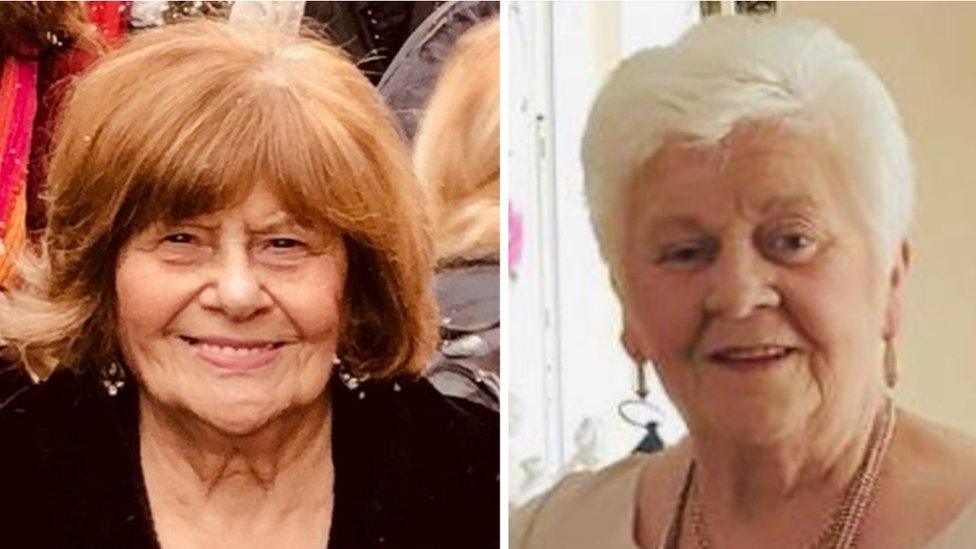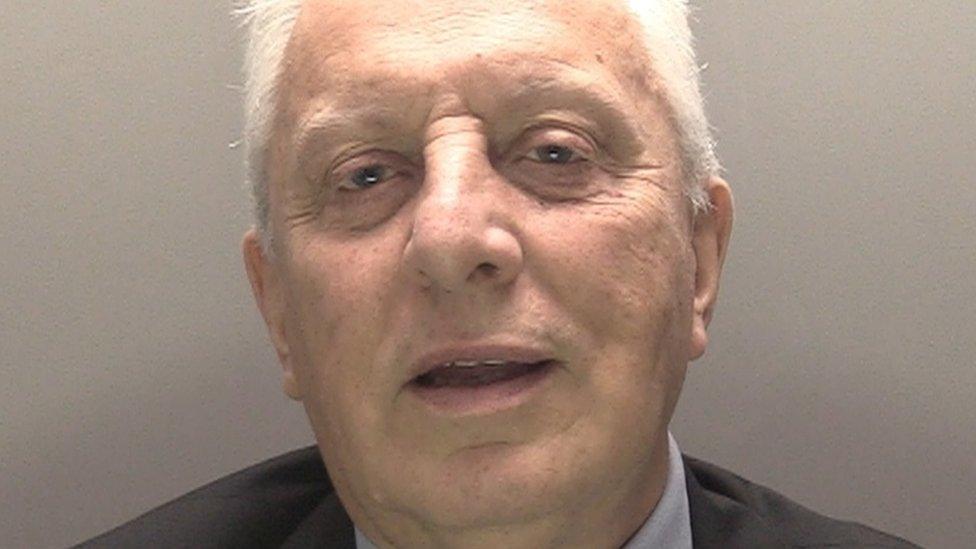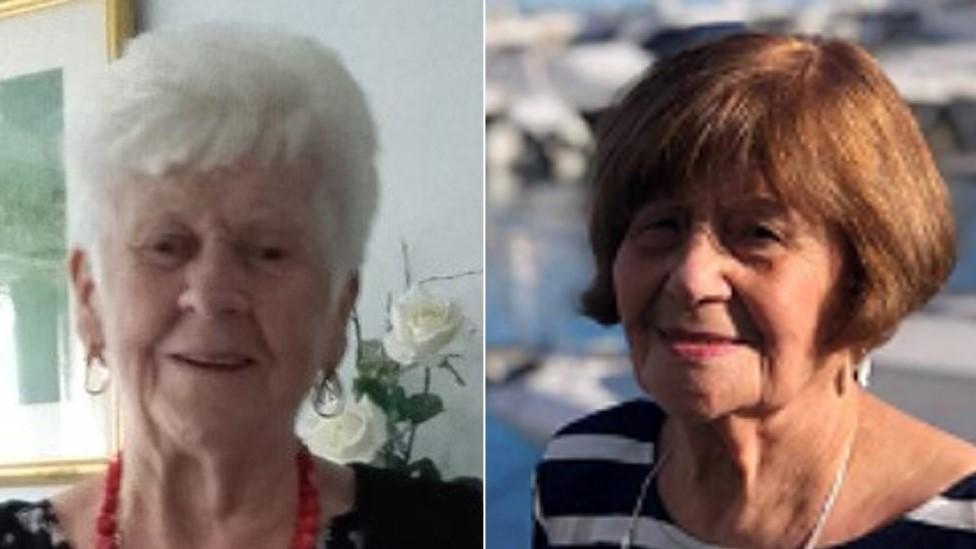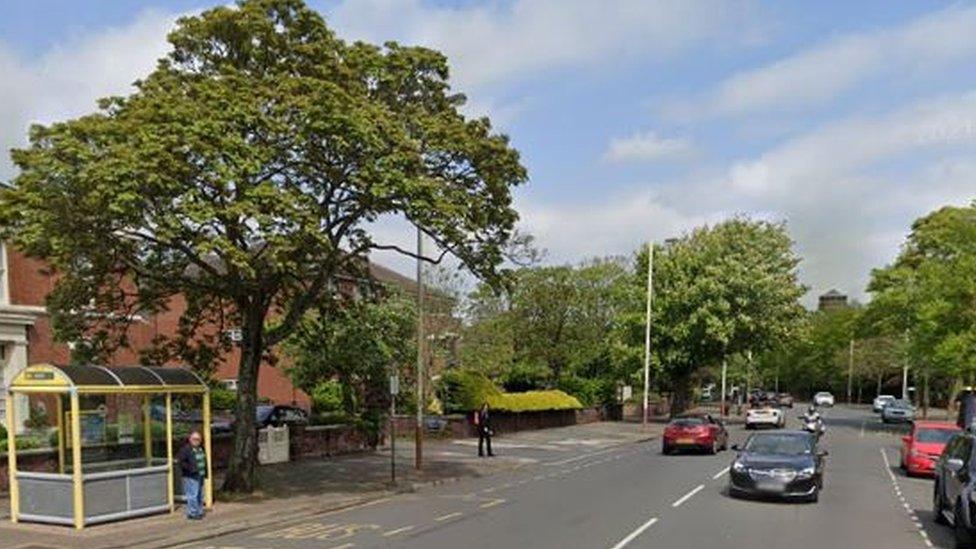Crash victim's son wants law change on eyesight rules
- Published

Grace Foulds and Marie Cunningham were returning from Southport town centre when the crash happened
The family of a woman killed by a driver who could not see the steering wheel wants the law changed to prevent people with poor eyesight from driving.
Marie Cunningham, 79, was walking with her friend when they were struck by Glyn Jones in Southport in 2021.
He was jailed after ignoring medical advice not to drive, police said.
Ms Cunningham's son Terry said medics should be required to inform the Driver and Vehicle Licensing Agency (DVLA) if a person is unfit to drive.
According to the law, external, drivers must inform the DVLA about certain medical conditions that can affect their driving or they could be fined up to £1,000.
Mr Cunningham told BBC Radio Merseyside: "The DVLA needs to change... and the way they come into the modern world is that ophthalmologists and consultants tell the DVLA of a condition that you have, rather than you doing it."
He said he did not want further situations where "the car is safe and the driver isn't".
The DVLA said road safety was its priority.

Glynn Jones ignored medical advice not to drive
Ms Cunningham was crossing the road with her friend Grace Foulds, 85, when they were hit by Jones on 30 November 2021.
They were taken to hospital where they both died later that night.
On Friday, Jones, 68, was jailed for seven years and four months for causing death by dangerous driving. He was also disqualified from driving for nearly 10 years.
Following the crash, he failed a roadside eye test and it emerged he had not notified the DVLA about a condition affecting his eyesight and ability to drive.
Jones initially told police the women had stepped from the pavement on his left, despite footage showing they had crossed from the opposite side.
'Unnecessary and avoidable'
An expert estimated he was driving his Audi A3 between 28 and 38mph when he hit the two women. CCTV showed he did not brake beforehand.
Det Sgt Andy Roper, from Merseyside Police, said an optometrist found that Mr Jones' vision was "well below the standard required for driving a vehicle and he was informed of this on several occasions by opticians and his GP".
He added: "He chose to ignore this and continued to drive despite the expert optometrist concluding that 'his vision without any correction would have been so poor that he would not have managed to see the steering wheel of his vehicle clearly'."
Following the sentence, Ms Cunningham's family described what happened as "unnecessary and avoidable".
Ms Foulds' family recalled how - before her death - Australian relatives had planned to fly over for a surprise reunion for the first time since the coronavirus lockdown.
A DVLA representative said: "Road safety is our number one priority.
"That's why all drivers are legally responsible for ensuring that they are medically fit to drive and for notifying the DVLA of the onset or worsening of a medical condition that could affect their fitness to drive.
"While doctors or opticians are not legally obliged to inform DVLA, they can and already do, in instances where they consider a patient unfit to drive."

Why not follow BBC North West on Facebook, external, X, external and Instagram, external? You can also send story ideas to northwest.newsonline@bbc.co.uk
- Published26 January 2024

- Published2 December 2021

- Published1 December 2021
